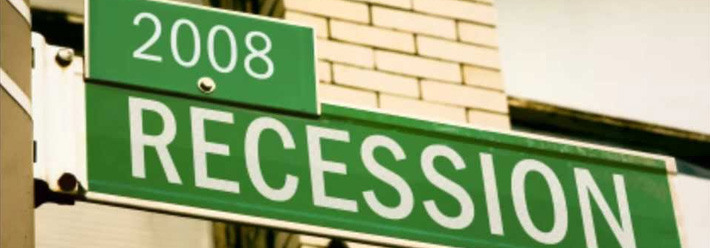I was talking to a guy from Waggl yesterday, because I may do some additional writing for them. We had an interesting conversation that touched on a few different bases, and one of the things we talked about was this notion that, in work, there’s a “way things are” and a “way things should be.” I feel that’s pretty accurate, and obviously a lot of different factors play into the schism. I’ve covered a lot of them over time on this blog, but some include perceived value of hierarchy, the notion of digital natives, a shift towards “purpose” at work, managerial disconnect, and more.
Here’s another one: the 2008 recession.
It’s a fairly common narrative that, because of the 2008 recession, many Baby Boomers delayed (and/or are delaying) their retirements. My dad just missed the Boomer cut-off — I believe he is “Silent Generation” — and he still works, although admittedly probably not five days a week. He’s 74. (Shit, I just realized my dad turns 75 in April. I should plan something.) So much for the “65 and out” narrative, right?
The correlated argument is that Boomers are reluctant to retire, as seen here via Gallup, both because of a famed work ethic and because they’re still carrying a lot of debt. Research papers have been written about what the delayed retirement means for younger generations, and the flip side of that is a loss of 2 million jobs when the Boomers do eventually retire en masse. In short, it’s a complicated picture.
Here’s my broader point, though: many Baby Boomers are in their late 50s to late 60s now, and wherever they’re working, they probably have some degree of management role / leadership role / control over some section, if for no other reason than they’ve been working 30-40 years and eventually, time served gets you up the ladder. There are definitely Baby Boomer-era people who can adapt to technology — my father-in-law is probably one, although he’s not really a Boomer per se (he’s about 56) — but by and large, most Boomers I’ve worked with are pretty slow to adapt and relatively set in their work ways. (I’ve mostly worked around editorial and marketing in my life, and that’s an area where technology changed everything, and the old-school people still cling to the value of print — so maybe my experiences are a bit skewed.)
Because you have these old-school types sticking around, some of the big changes we’ve been forecasting to the world of work are going to be slow to come about. A big example here is the notion of employee engagement, which has caught fire in recent years. What I’m about to say is somewhat of a generalization, but I believe it to be true: employee engagement is not a thing that old-school Boomers would ever give a shit about. It’s very caught up in fluffy terms — who’s supposed to like work, right? You’re supposed to make money! — and it tends to roll through HR, which old-school types are going to look at as “personnel” or “office cops.” HR has never really been considered a “seat at the table” function, except in very progressive companies.
It’s almost a dichotomy of two coasts in the United States. In New York and the I-95 corridor, where finance is still somewhat king, you definitely have an older-school mentality — even that Fast Company cover package on “purpose at work” I was writing about yesterday admitted that “purpose” will never have a home in finance — but then in San Francisco and Seattle, you have a bit newer-school mentality in terms of some of the approaches to work and ideas. Still, in those places, you have older-school, veteran guys leading a lot of departments, and that can stifle some of these new movements. Habit formation is a powerful thing, and it’s even more powerful around classic management advice, which many people take as gospel. If you’ve been doing things within Marketing/Product/Sales/etc. for a really long time, you’re probably going to take a while to come around to some new ideas.
I think “We’ve Always Done It That Way” is maybe the worst fucking thing you can say in a business context, especially in the modern era. (20 years ago, neither Google nor Facebook existed. Now they’re both probably part of your day-to-day life and ad/sales strategy at your company, right? So there’s no such thing as “… always done it that way…,” IMHO.) But I also think the expression got another 8-10 years of life because the 2008 recession tanked us for a bit, and kept the old-guard middle managers and top dogs in place for a while longer.
